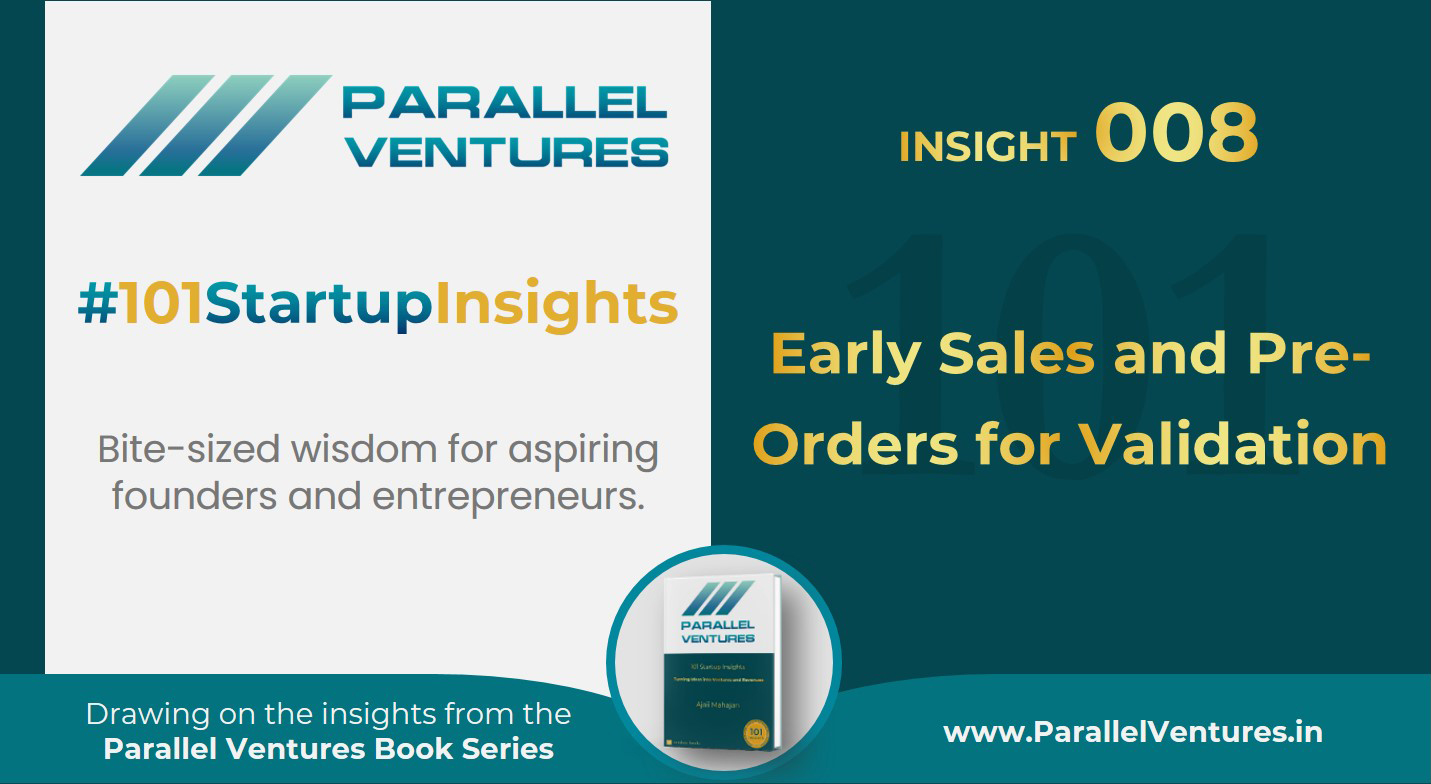
Every founder dreams of their first sale—not just as a financial transaction, but as a moment of truth.
Until someone pays for your product, you’re still working on a hypothesis. But the moment money changes hands—when someone willingly parts with cash because they believe in what you’re offering—your idea becomes something more. It becomes real.
This insight is about that moment—and how early sales and pre-orders aren’t just about revenue, but about validation.
The First Sale Is Not About Scaling—It’s About Learning
There’s a reason the first few sales matter more than the first hundred. They test your messaging, your value proposition, your pricing, and your delivery—all in one go. And they show you whether customers are truly interested, or just being polite.
If they’re willing to pay, that’s not just validation. That’s clarity.
It’s easy to get caught up in building and refining. But sometimes, the most effective next step is to simply ask:
Will someone buy this—right now?
How Priya and Rohan Approached Early Sales
Priya knew her sustainable fashion brand needed traction—but she didn’t want to overcommit to inventory without demand. So she launched a pre-order campaign through a basic e-commerce site. She offered early access to her designs, with limited-time discounts and transparent timelines.
This did two things:
- It allowed her to test the market before producing at scale.
- It provided cash flow to fund production responsibly.
Customers responded—not just to the product, but to the honesty of her approach. And the feedback she gathered helped her fine-tune everything from sizing to packaging.
Rohan took a more direct approach. He leveraged his existing network—people who already trusted him—to pitch an early version of his logistics platform. No bells and whistles, just core functionality and a willingness to listen.
He secured a handful of paid customers—enough to know he was solving something real. That gave him the confidence (and the proof) to start building more intentionally.
Why Early Sales Matter So Much
There’s a difference between someone saying “this is a great idea” and someone saying “here’s my card.”
Early sales:
- Confirm actual demand, not just interest
- Provide working capital to fund next steps
- Reveal customer objections and areas of confusion
- Build momentum and confidence when it’s needed most
Even a few sales can shift your energy from dreaming to doing.
How to Structure Early Pre-Sales or Launches
You don’t need a full website or product. You need a clear offer, a way to show value, and a path for someone to say yes.
Here are some ways founders validate through early sales:
- Landing pages with pre-order functionality
Use platforms like Gumroad, Shopify, or even Notion to showcase your product and take payments upfront.
- Beta versions with early access pricing
Offer a simpler version of your product with a lower entry price, and reward early adopters with future perks.
- Email waitlists with limited availability
Create scarcity by offering only a set number of early slots—and see how fast they fill.
- Crowdfunding campaigns
Platforms like Kickstarter or Indiegogo let you test demand and raise funds before production.
The key is clarity—on what you’re offering, when it will be delivered, and what the customer will get.
Use Your Network—But Don’t Stop There
Friends, colleagues, and past clients can be powerful launch pads. Don’t be afraid to ask for feedback, pre-orders, or referrals.
But treat their interest as a starting point, not your entire market. Your goal is to learn what strangers—those outside your comfort zone—think about your offer.
Because if people who don’t know you start buying, that’s your signal to grow.
This Insight Is Just the Beginning. In the Book, You’ll Explore…
- How Priya and Rohan structured their early sales experiments, with real numbers and outcomes
- Tools and templates for building lean pre-order pages
- How to communicate clearly during pre-sales to build trust and avoid churn
- Case studies of founders who used early sales to fund production, refine products, and build communities
- A checklist for launching with minimal spend—and maximum insight
Before You Go
The first sale is more than a milestone.
It’s a moment of transformation.
Because until someone pays, you’re building a possibility.
But once they do—you’re building a business.
Go ahead. Make the ask.
You might be closer to validation than you think.
Until next time,
Warmly,
Ajaii Mahajan
Founder, Mentor, Author – Parallel Ventures
Related Links
🌱 Explore the Books – Parallel Ventures
